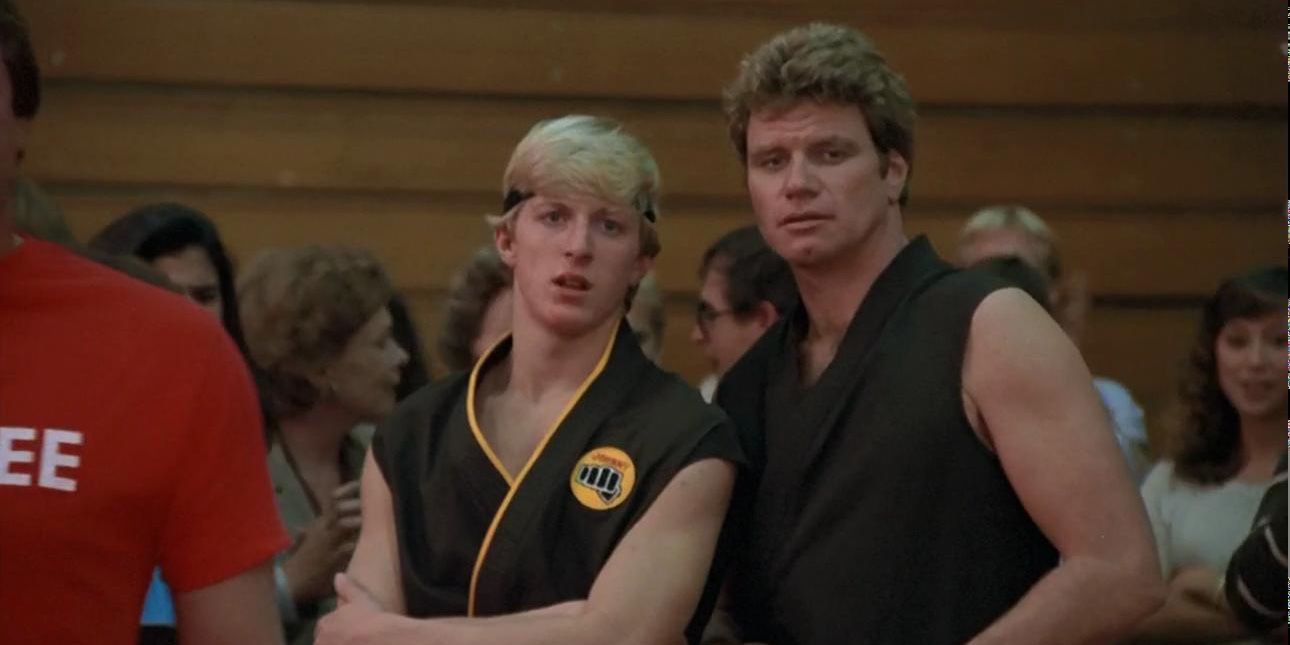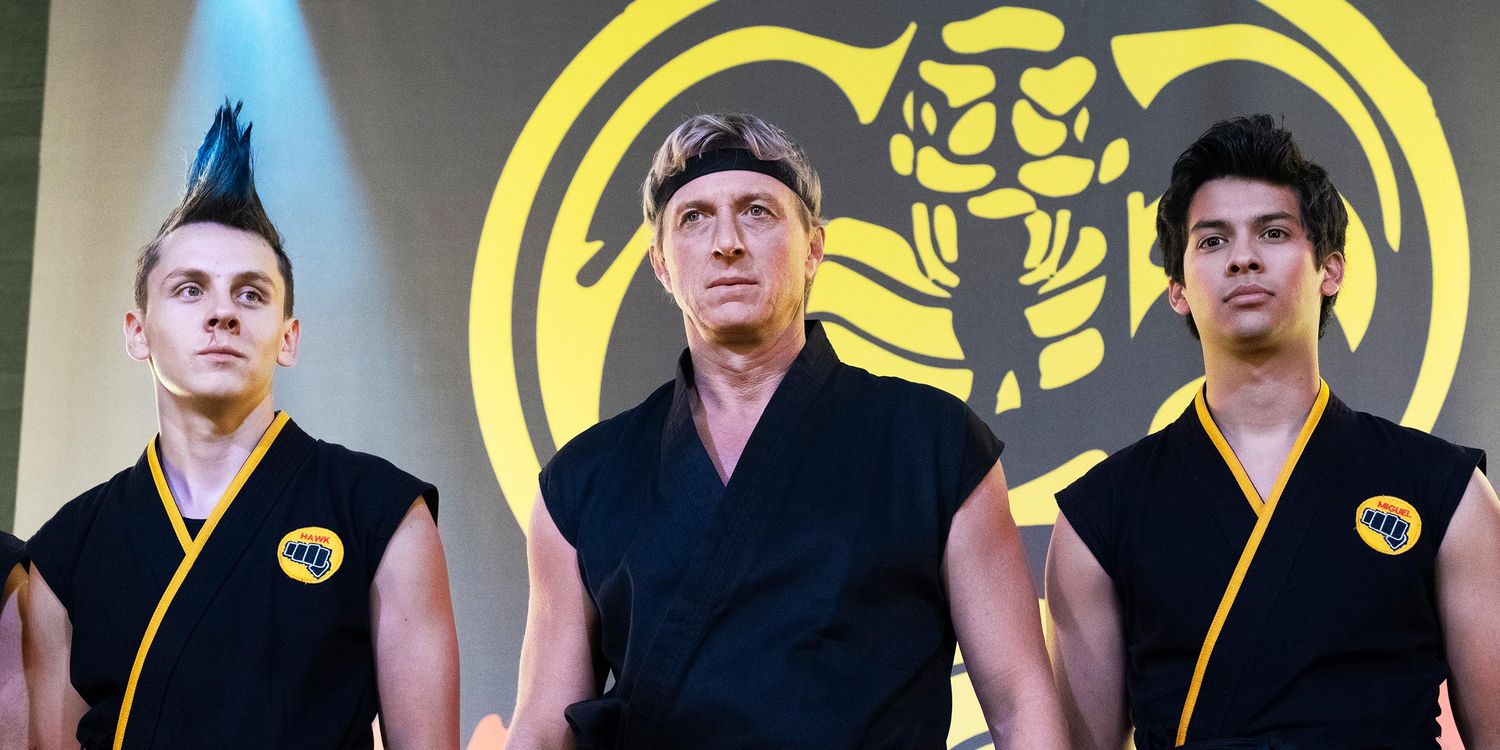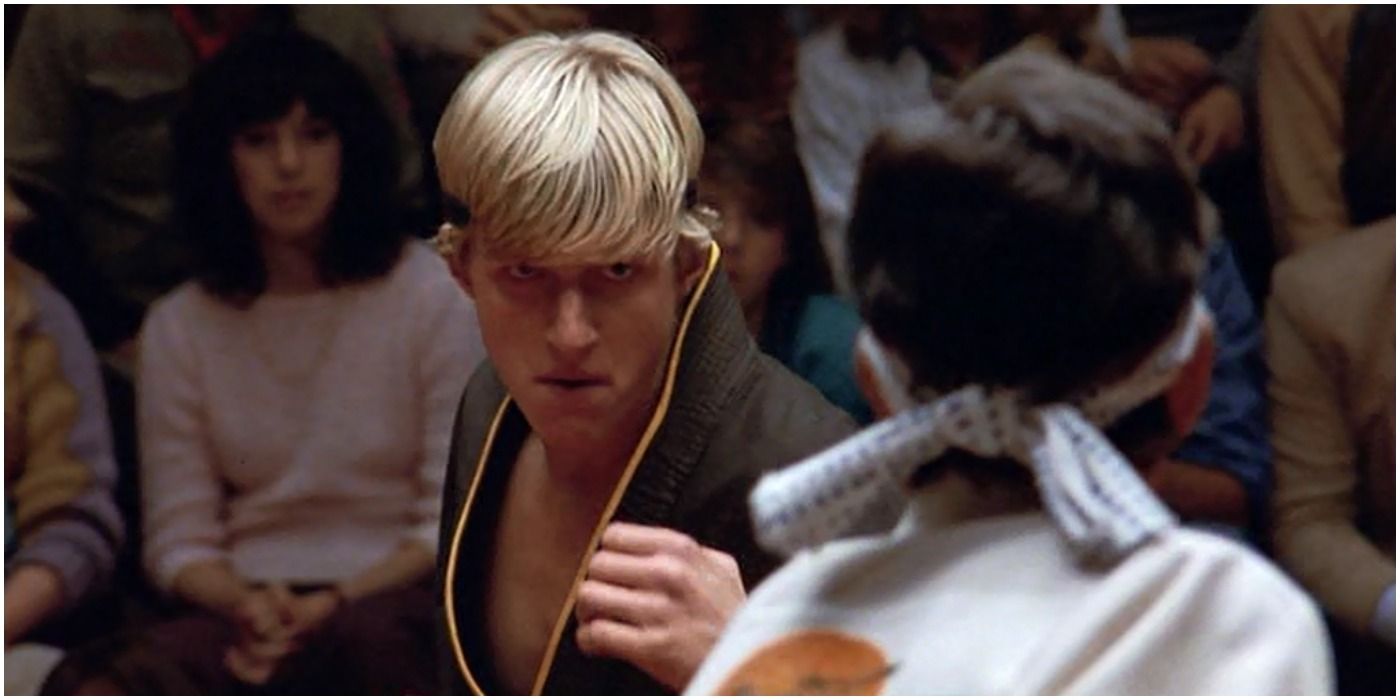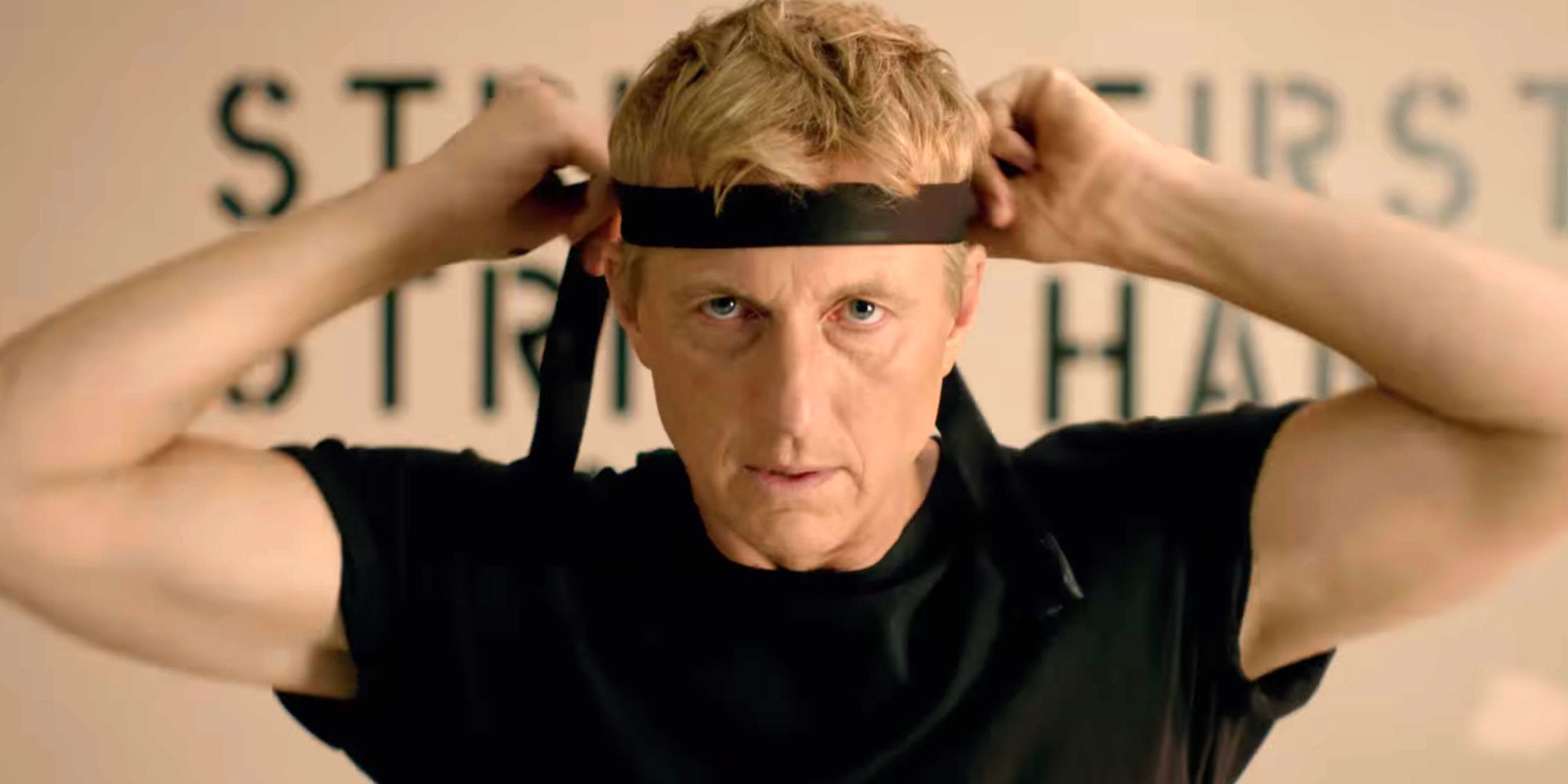William Zabka is an actor, screenwriter, producer and director. Most known for his role as Johnny in the Karate Kid franchise. He also had an Academy Award nominated short he worked on. He is now the lead role on YouTube Red’s super successful series Cobra Kai where he reprises his role as Johnny 30 years later.
Thank you for speaking with me, I appreciate your time. First off, congratulations on the 35th anniversary. It's a must be amazing to be a part of something so iconic. Did you ever think you would be part of something so huge and so that people hold so dear to them, you know, after all these years?
William Zabka: You can never imagine it. I mean, you know, did it surprise to me to see how it's grown and stuck with culture? You know every year as the years have gone by it just stayed with us, so you can never predict it. You can never anticipate it. it was just a, it's one of those amazing things that happen in life sometimes. Yeah.
That's awesome. so when you first got the role were you given a lot of freedom as far as like, things you could do, you could do to create what you imagine Johnny to be?
William Zabka: You know, that there's the script was really locked down by Robert Canaan wrote incredible airtight screenplay. and then you know with the director like John Alex in knows, directed rocky and knows what he wants. And so I had some very strong guidelines in the script and I had a director who really had a vision. I think he coached everybody including me, to personify these roles. And so kind of. But I'm sure that I would have some there'll be some moments where I'd have an idea, John only open to hearing it and I usually rehearsals cause rehearsed this thing for a month before we ever shot it. You know you could try that. Yeah I always felt a, your first movie.
I think the thing that a lot of fans is that there is a character for each of them, like someone that they could relate to was there a character other than Johnny that you really related to or were you a lot like Johnny's character growing up?
William Zabka: It's a great question. when you're, when you're given a script and told to focus on your , you jumped into that skin. So I didn't really read it. Objectives I connected with and in many ways I could connect with Daniel because I was in implant from a New York myself when I was 10 years old to La and I was the new kid in town. And I had some run ins with the local kids at the very beginning. I did not to learn karate, defend myself. you know, I knew what it felt like to come from east coast to California and how about, so you know, but, it really, I mean as far as they get assigned with the role, like, you know, none of this character yeah. Of Jerry and Lauren that I was told to look at and I had to find the pieces getting that strip that connected to me and that I could see myself in.
And there was two parts of that in the first one was the opening scene of the movie where you can look on the motorcycles on the top of the hill and he says, I have one year to make it work. So, you know, he was the guy trying to make his way there and then it's him the trophy and says, you're all right. Yeah there was a kind of like true nature. And so, uh, that's how I saw myself in the character. My life parallel to Larusso was as an intern in some funny ways, as you imagined.
That's interesting we got to see you a little bit in part two at the very beginning. And then I was speaking with Martin Kove said that that was originally supposed to be part of the ending for the first film. What do you believe, what do you, in your opinion, what do you believe transpired with Johnny's character? in between, like when part two and part three, we're actually going on because we didn't actually get to see, oh, what's that?
William Zabka: No, no, no. I'm sorry. You thought you were talking about the film, Karate Kid Part 2.
I was talking about and learning what you, what you and your opinion believed happened to Johnny during part two and three, you know, since you weren't really seen in those films.
William Zabka: Yeah. So where did he go? Yeah, the writer's fault. They locked him up in a cage and they brought him out 35 years later. I never really, I never really thought about where he went from there. I know he didn't go to Okinawa. Yeah I would have loved to gone to Hawaii and did a car, the credit get you in a more, in a bigger way.
We were talking about where Johnny was in part two and three.
William Zabka: You know when they were, when they were writing part three. And I know that Dave wrote that sort of, that they weren't almost but I keep scheduling it. Other reasons didn't work out. So they created a Mike Barnes and when I called it a direction, which was fine with me, you know, I've got to be part of the original one. And it was always for me hard to watch. The other one didn't quite copy originality.
Johnny was definitely a misunderstood kid I think for you know, for me as a kid when I first watched it, I obviously just saw Daniel's point of view. But looking back at it now, especially there is this youtube video that I watch where it kind of explained ways, the ways that Johnny just was misunderstood. And also that How i Met Your Mother episode, it really kind of opened my eyes to like a different perspective. When was the first one you realize this and was it, was it interesting for you to see that, that point of view?
William Zabka: I realized what the, what the narrative is of these videos that were put out?
Yeah. The narrative, different perspective and from Johnny's point of view.
William Zabka: Yeah!. You know, I got a kick out of it. I mean, I always in order to play it wrote, as I said, you bring yourself to it so that I'm not Johnny Lawrence. It was hard to give Johnny is a bad guy. So I tried to find the redeeming quality to them and it builds his back story. So a lot of what came out you know kind of a characterization but the truth, but you know the truth then I held onto was that email. I was misled by a set date clearly again his are nowhere in this, in the movie. So I imagined that he didn't have a good relationship with the folks are, they weren't present too much in his life. Yeah.so you know, and he lost his girl you loved and what's back here comes a new kid in town who then kind of sticks his nose and his business, you know, the credit kicked gave a lot of levers for its triggers for Johnny to react.
You know, he didn't come on the beach and see Daniel with Alli and then unleash a barrage of feet on him. You know, Daniel kind of butted in and, and do his world. Right. And then the next time he really, he takes him to visit the, at the Halloween dance. And Johnny's really writing zone. Did this, yeah. So it was, it was kind of, you know, somewhat easy to play those, those parts of being aggressive because I felt justified at the character felt justified in it by reacting to something you provoked by him. No. When, uh, you know, when, years later, decades later when, you know, that kind of pop culture narrative of this kind of swung Johnny's direction, you know, it was kind of eerie, kind of charming the way, you know, with no shoes. I don't buy into it all, but it was nice.
You know, it's almost like, so many years later you could, you know, the emotion of that, that movie is so powerful. The first watch it in the kick and you know, and you're still on the side of defeating the enemy. that emotion and that adrenaline rush, you know, is, is big. And only in hindsight, I think after watching the movie, you know, a dozen times or so, or a hundred times or whatever, many times you've seen it over the years, you know, you can look back and start analyzing it a little bit. And uncover some of that you know, some of the other perspectives, including Johnny and that's been kind of thrilling. Well, really that's what's been kind of the origin of our show Cobra Kai. Yeah. How they've kind of come into Johnny's point of view and painting and that back story. So, yes.
How old are you when you were first filming the first movie?
William Zabka: I just turned 18. I turned 18 that day. We filmed that batch. I graduated high school early thankfully. I'd had been in high school itself, but I was in college and I turned 18, 10 days before we started filming the show.
It must've been like amazing for you being at such a young age to be part of something like this. Is there any interesting stories or interactions that you had, with fans that you always remember it till today?
William Zabka: So many You know back in the day it was almost surreal to have people, they see me as this guy because all time I'm known as billy, as an actor in drama school and they're wrestling to move. And I was pretty much a character actor too in high school. Drama I did a lot of comedy. I kinda saw myself more as a comedic actor, to be recognized as this kind of tough guy in this martial art guy. You know, it took a minute to kind of absorb that. So the early days when that first happened, it was a it was a life altering experience. But I think, you know, later in years is as time's gone by and you know, when we go out and do a show or I meet, I meet families somewhere to a restaurant or whatever.
Like you see these kids that are six, seven, 10 and their grandparents all sharing, you know, a love for the film. It's, that's the stuff that's just amazing. It's mind blowing to see that the cell was transcended so many generations and touched so many people. And you know, some people that have been bullied that um, you know, i met a girl was 14 and her mom told me she was very bullied growing up. And yeah, she got into martial arts and know how you doing now. She goes, Oh, if I'm not just throw an elbow. And she said you, it was Bob girls and martial arts. Really, Kevin, still some good confidence in people. And so to see how that film did that and it also, it, it helped kind of generate the martial arts schools in America. And then looking back I was like, you know, it was really the kind of a window.
And the door to a whole new type of martial arts, kind of booming in our country. And now schools that went up and he keeps getting enrolled in that coming from wherever they came from. So to be a part of that, that I was the first one to be on the receiving end of that because I was a white belt. I was not a karate guy when I stepped into the cell. Now he's trained by you know, a legend Pat Johnson who was in the a grandmaster martial artists to trade me from the ground up and he trained ralph from the ground up. And you know, we've got trained at the actors and then we put on this play and it's, you know, that training and those ideas that came through the writing and the martial arts has impacted culture there. I just, I just find it all fascinating, you know? Yeah. So that's a long winded answer, but it's just, you know, there's many, many things along the way, but the ones that get me the most are when they were going to get the tapes today. Yeah. Um, who are just discovering it for the first time and it's still playing. They could get for you guys.
Yeah. Also describe your dynamic with you and Ralph on set. Did you guys get to hang out a lot on set or did they kind of separate, you just do kind of build like the little animosities so it translated on screen?
William Zabka: Well we had to work really close together, obviously choreographing the final fight. Yeah. Yeah. And we had to work together, you know, five days a week, hours a day at that from the time we started for three months. So we were, we were together all the time. We were encouraged by John Appleton to not pretty much socialized offset too much John, you know, encouraged me to get in, hang out with my, uh, my Cobra Kais and a, yeah, Daniel Ralph had his hands full with all the, all the meat, you know, with all this stuff. You have a cat, Rita, who's really the soul of this film, you know, no miyagi there's no Yoda. He's that. He's the magic that's, and their relationship is not the heartbeat of the film. So Ralph had his, his work cut out for him to stay in that pocket.
So yeah, we were, we were separated, you know, it, you're brought together to do the technical stuff and then we would in rehearsals and then we went and shot it through, brought up set together. But we were, you know, pretty much a team because we throwing feet elbows at each other for the whole movie. And uh, you know, there's a lot of respect and trust that comes in that so we were definitely friendly and you know you know, as time's gone on we've become friends and you know, may have been better friends back then. Um, having not been separated.
Being part of a film like this and being on camera did that kind of inspire you to do more work behind the cameras and getting into production or directing. Did that influence a lot of your career now?
William Zabka: Yeah. Great question. I was in film school when this happened, so I would, my dream was to be a filmmaker. I didn't go to acting school. I went to the filmmaking school. Okay. And, I loved acting and I had this since I was 10 years old. I wanted to do film and television, my first passion and I've been making eight millimeter films, I started making filter. I of 10 years old at tech. I might post some of those online because I have a digitized now and I'm 10 years old and I'm directing these films and editing them.so it was very you video came around and I got way into that. then, you know, but then my acting career took off and I just went on that ride.
And you're like my training for all this is onset and I'm learning way more by being on set that I could ever learn in school. So I did finish my school. I went back into classes here and there and cameras and scripts and things like that But I didn't finish a course in it cause I life was a course in it, you know, and that, um, then later in my career I took the big break from acting really dove headfirst into the, my first passion, which was being behind the camera and made a short film. I was nominated for an academy award director or some big bands and a couple of documentaries and he's got into the edit room and behind the camera, which I absolutely love equally to acting.
Yeah. Now, one of the most amazing things are in one of the things that I feel as, as, as a star of a movie would like know that they are, they're immortalizes you have your own action figure. When they came out did you go immediately out to stores and just like, I want to buy these action figures that I'm met. I'm this actual toy. Was that, was that amazing for you?
William Zabka: You know, there were a couple that came out. Karate chop and karate kick thing so I have a balance and my kids get to play with them sometimes when we don't get to really play with me. I said here, play with Daddy.
Did your kids like the film when they first watched the original film? Were they kind of surprised?
William Zabka: Well, I have a nine year old and a five year old and believe it or not they haven't seen it. Not that big here and they want to see it. Um, it's just comes through that, you know, as a dad, I, you know, your impression on your kid is regardless of anything, it's like it's just to be a father and yes. You know, it's more about, you know, partly because Johnny was kind of scary character probably for them a little bit, but more that um, you know, your dad on television is a strange thing where I played an animated dog dog and then a little bit of how i met your mother where I played a clown I was hurting production. We know all about it. Neat. Eric, all about he knows about us and all the guys become instead of cobra kai both of the paths. Yeah. And, uh, actually the talk around the houses you guide when we get to watch the film and tell you one that's coming up, like, you know what I mean? Time. Uh, yeah, it would have present them as uh, you know, your, your dad know people that you know that. Yeah. God I him a ride their bike and hang out and listen to me.
That's awesome. That's awesome. Now a little off subject. Uh, originally the, The Karate Kid title was, couldn't be used because it was an actual was a DC property like speaking about DC properties, what would you ever consider maybe a joining any of the superhero universes?
William Zabka: Absolutely outrageous and fun. I Dunno. I Dunno who's left out there, you know, with what spirit wasn't dust it off, but yeah, sure. There's the broke and old superhero. I'd love to jump in there just for fun. Yeah.
More: Martin Kove Interview for The Karate Kid
The Karate Kid Fathom Event is taking place at more than 600 nationwide theaters this Sunday, March 31, and next Tuesday, April 2.




